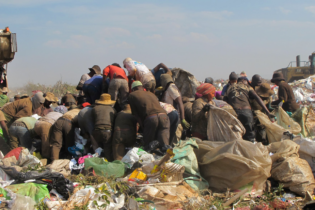Pondering Panda, a subsidiary of the World of Avatar which owns Mxit, some 84% of young South Africans are concerned about the consequences of fracking.
These results come amid reports of how the exploitation of shale gas can change the landscape of the global energy scene. Concerning however, is the low level of awareness of our country’s citizens. Around 62% of South Africans have never heard of the process and a quarter could not define it accurately. Surprisingly, 34% thought fracking offered protection from sunburn and 26% said that fracking is a sexual activity. The government’s decision to lift the moratorium on fracking was described as ‘misguided’ by 53% of the 8 500 Mxit users. There is also strong opposition from environmental groups with a global anti-fracking day planned for 22 September to coincide with a protest march in Cape Town.In the meanwhile, Frost and Sullivan have released a research report, ‘Analysis of the Global Shale Gas Market’ which indicates that the resources in the Karoo, estimated to be the fifth largest in the world, were likely to enhance the use of gas as an energy source. The dominance of the Middle East and Russia in this market will also end as demand comes from China and Japan, the latter due to the Fukushima nuclear disaster.
Secondary benefits include the development of industry associated with fracking. Equipment, technology and machinery are required for the extraction of this resource and Frost and Sullivan predict that this industry will grow by 10% in the next eight years. Innovations in water use and waste water treatment will also increase as fracking uses large volumes to extract the natural gas. The CEO of the World Wildlife Fund in South Africa, Dr Morne du Plessis said that his organisation is concerned about the environmental aspects of fracking as well as losses of 1.6% of the methane loss which contributes to global warming and climate change. Source: aesquared.co.za





